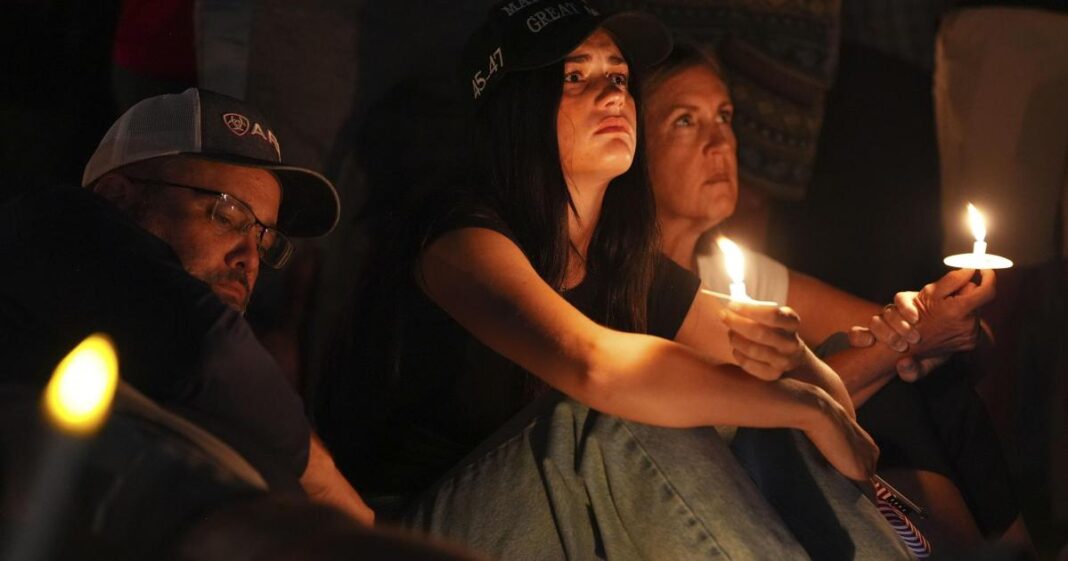Reflections on 1968: A Year of Unraveling in the USA
The year 1968 is etched in the American memory as a turning point—a year marked by tragedy, turmoil, and a palpable sense of loss. The assassinations of two iconic leaders, Martin Luther King Jr. and Robert F. Kennedy, heralded a national crisis, triggering unrest and reshaping the political landscape in ways that still resonate today.
The Assassinations: Catalyst for Chaos
Martin Luther King Jr. and Robert Kennedy represented hope, change, and possibilities for a brighter, more equitable America. King, a champion for civil rights, was assassinated in April 1968. The aftermath of his death saw riots erupt across numerous cities, predominantly in Black neighborhoods. The collective grief was quickly overshadowed by anger and frustration—frustration at systemic racism, poverty, and a society seemingly unwilling to change.
Just a couple of months later, Kennedy—a leading democratic candidate poised to lead the nation towards healing—was killed in June. A friend of mine who witnessed the chaos that followed Kennedy’s assassination recounts it as a time when the United States “lost its mind.” The Democratic National Convention later that year devolved into chaos, highlighting the deep fractures within the party and the nation as a whole.
Nixon and the Rightward Shift
The political vacuum left by these leaders allowed for a significant shift toward conservatism. Richard Nixon, running on a campaign of law and order, successfully positioned himself as a suitable alternative. With his election, the country shifted to the right, leading to the launch of the “War on Drugs” and a prolonged engagement in Southeast Asia through the Vietnam War.
Cities burned, social tensions escalated, and violence became an unsettling norm. It was as if the assassination of hope had unleashed a torrent of social unrest, pushing America deeper into a cycle of violence and division. The fallout from these events would reverberate for years, setting the tone for a turbulent era marked by riots, protests, and escalating racial tensions.
The Lingering Shadows of 1968
Despite the passage of time, some argue that the United States has yet to fully recover from the shadows cast by 1968. The hope embodied by King and Kennedy evaporated, replaced by an intensifying drug crisis, ongoing wars, and a significant rise in gun violence. The optimism of the early 1960s transitioned into a realization of the limitations of political leadership.
This sense of foreboding is echoed in contemporary America. Many observers express concerns that the U.S. is once again teetering on the edge of an abyss. A friend from Texas, whose family has historical ties to political luminaries like Lyndon B. Johnson, reflects on the current state of political despair—a sentiment that appears increasingly common.
Current Political Climate: Fears and Fractures
Recent political dialogues have shifted dramatically, with issues like abortion and gun control overshadowing traditional discussions around education and poverty. An increasingly polarized environment has resulted in physical confrontations in public spaces, showcasing a society grappling with extremism. Reports of individuals openly carrying assault weapons as they cruise through communities reflect a disturbing normalization of menace.
Through these changes, a certain skepticism toward political mechanisms has burgeoned. The once-clear issues of education and poverty seem to have faded from central discourse, replaced by moral and social concerns that have driven wedges between communities.
The Duality of Admiration and Despair
Despite these challenges, many still admire the United States for its diverse cultures, inventive spirit, and foundational ideals of freedom and democracy. This admiration is often complex, muddied by a frustration with the current government, viewed as failing to live up to the principles espoused by leaders like King and Kennedy.
Their philosophies, historically separated by generations and contexts, find resonance in today’s discussions about inclusion and equity. Both speakers advocated for higher ideals—justice, equality, and compassion—yet their legacies are becoming distorted in a landscape characterized by division and hostility.
A Call for Respectful Discourse
With society facing changing demographics—over half of American youths identifying as non-white—potential for a significant political transformation looms. This demographic shift could herald a new chapter in American politics, but it also amplifies the need for respectful discourse.
The lens through which we view politics today is increasingly fractured, with social media exacerbating narrative polarization. The possibility of finding common ground, of engaging in productive conversations across divides, is diminishing.
Political engagement needs to prioritize understanding and mutual respect, avoiding the descent into a chaotic echo chamber that consistently threatens to spiral out of control. The urgency of this conversation grows more pronounced as communities reflect on the past to forge a more united future.
Reflections from Across the Atlantic
Across the Atlantic, the state of British politics mirrors this turmoil, albeit less violently. After a surprising landslide victory, the Labour Government now appears to be in a state of disarray—a trajectory that raises concerns not only for the electorate but for societal cohesion at large.
Recent challenges faced by Labour, from leadership controversies to internal party strife, evoke echoes of disillusionment. It highlights how fragile political fortunes can be, especially when leadership fails to resonate with its base.
As these leaders grapple with their crises, the ramifications extend beyond political survival—they carry the weight of national sentiment. The UK faces its own specter of growing unrest, amplified by forces that echo the discontent witnessed in the United States.
The Need for Reflection
As we navigate these turbulent times, a period of introspection is needed. Political engagement should balance strong ideals with a commitment to civility. The experience of shared humanity can prevail, even amidst stark differences. Recognizing the potential for constructive dialogue across divisions may ultimately be the key to fostering a more resilient and unified society.
The call for independence, whether in the UK context or within the U.S., emphasizes the necessity for a societal grip—a need to hold fast to core values while addressing pressing issues of the moment. Multi-faceted dialogues can help mediate the tumultuous political landscapes, steering us toward progress rather than fragmentation.



